by Michael | Feb 10, 2015 | Blog
It’s quite well-known that a huge percentage of people consider the prospect of dying preferable to public speaking.
In fact, most people involved in a wedding are likely to be afflicted by some sort of attack of wedding day nerves. A bit of adrenalin is good, but more extreme effects can include near-paralysis, mood-swings, depression and plain despair.
That’s not what anybody wants on a wedding day.
Why the nerves?
Nerves can surface because you fear your role or because you believe everything will go wrong.
One way to reassure yourself is to choose reliable suppliers, do everything as far in advance as is reasonably possible and re-confirm in reasonably good time. If you’ve planned sensibly, there should be no need for pessimism.
As for roles, every ceremony will be different, so there can be no one-size-fits-all approach, but I offer the following nuggets.
General remarks
- Whatever your job is – whether or not it needs a list – you must have ensured well in advance that you understand what is expectated of you. If your tasks involve planning, do check in good time that everything is as ready as possible.
- Arrive in good time on the day – allowing for traffic delays and the like.
- Try and be as relaxed as possible. If things go wrong – and small things often will – they can often be remedied thanks to no more than a cool head and goodwill. Most people will be understanding, helpful, supportive and good-humoured at a wedding. They have come to participate in a great day, and will want it to succeed as much as you do.
- If you are getting stressed, though, stop and take half a dozen deep breaths and get back in control.
- Alcohol is not a great idea (well, not until you have completed your particular role).
Parents
The bride’s father may have a speech to make, but, as I have advised elsewhere (http://wp.me/p5qOOT-sG), this should be short and simple. It can be read from a card, if necessary (although preferably not verbatim). Nobody has demanding expectations of him, so he only really needs to smile and speak slowly and clearly
Otherwise, parents’ participation in the ceremony may include walking the bride up the aisle, perhaps, but there will be nothing unexpected or trying. Moreover, the celebrant will be in charge then, and can guide you, if needed.
The money’s been spent – there’s nothing more you can do. Don’t criticise or fault-find. Relax and enjoy the special day!
Best Man
This role differs enormously from ceremony to ceremony. It usually involves holding and handing over the wedding ring, when requested. A good tip is to put the ring on your little finger until needed – but don’t put it over your knuckle! Your role may entail guiding the groom at every stage; it may even involve being a kind of master-of-ceremonies and photo-shoot organiser.
It will surely involve giving a speech. May I refer you to a previous blog, which covers this at length: http://wp.me/p5qOOT-sR.
Ushers, bridesmaids etc.
In most cases, you have been given an honorary position, so you have a limited (but important) role. The bridesmaids are there to support the bride and – to be honest – to look pretty. The ushers will need to help get people in to (and possibly out of) the ceremony venue. There may be other jobs later, but there is no need to be nervous. Smart, punctual and charming are the watchwords here. Enjoy.
Groom
The groom’s job is to remember the ring, be early and welcome people as they arrive (which should be enjoyable, as almost everybody will greet you with a big smile – and being nervous isn’t going to help you socialise!).
You don’t have to do much at the ceremony – the celebrant will prompt you. You will have to put the ring on the bride’s finger and you may need to recite the vows. (You can learn them off by heart, but much less stressful would be to use notes or read them from a 3 x 5 card – or even repeat them after the celebrant.)
The ceremony will whizz past and then it’s normally a question of signing the register (not too arduous!), the photos and eventually cutting the cake.
The only thing I have not yet mentioned is your speech. Again, I have written about this before in detail elsewhere, so please do have a look: http://wp.me/p5qOOT-sG.
Bride
Ordinarily, the bride shows up (not late, please!) a few minutes before ‘kick-off’. Her job is to be admired, – a beautiful dress and a lovely smile will go far. Sure, she will be the centre of attention, but she will be on a cloud of goodwill, so she needn’t be apprehensive.
Just remember that everybody is rooting for you all, and thousands of people have done what you are doing and survived. Some have even enjoyed themselves!
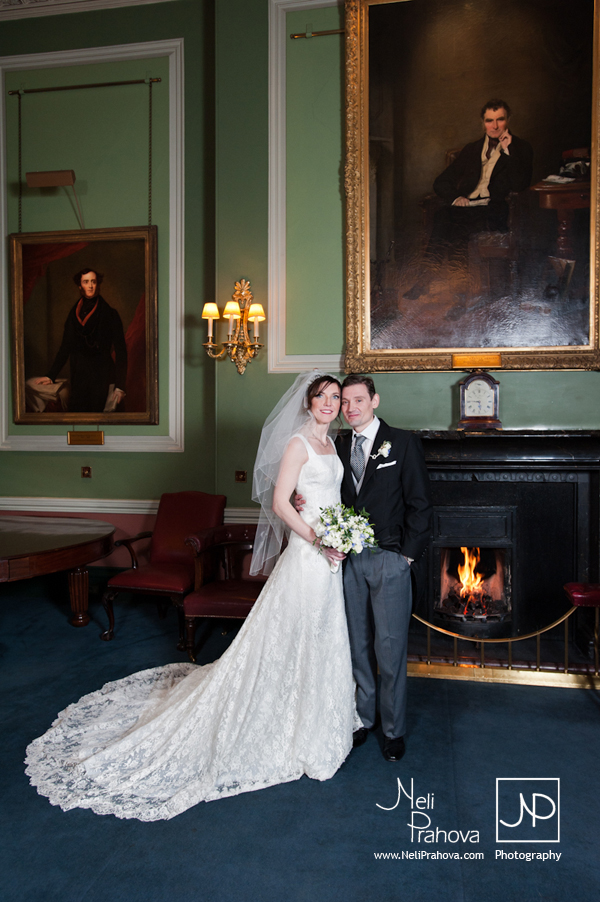
by Michael | Jan 20, 2015 | Blog
Most of the ceremonies I conduct are reasonably conventional (although all are personalised weddings, tailored to the couples or individuals concerned). Every so often I get asked for something a bit more way out.
Of course, “way out” means one thing to some people and something quite different to others. So perhaps it would be easier if I defined what I had in mind by the term “conventional”.
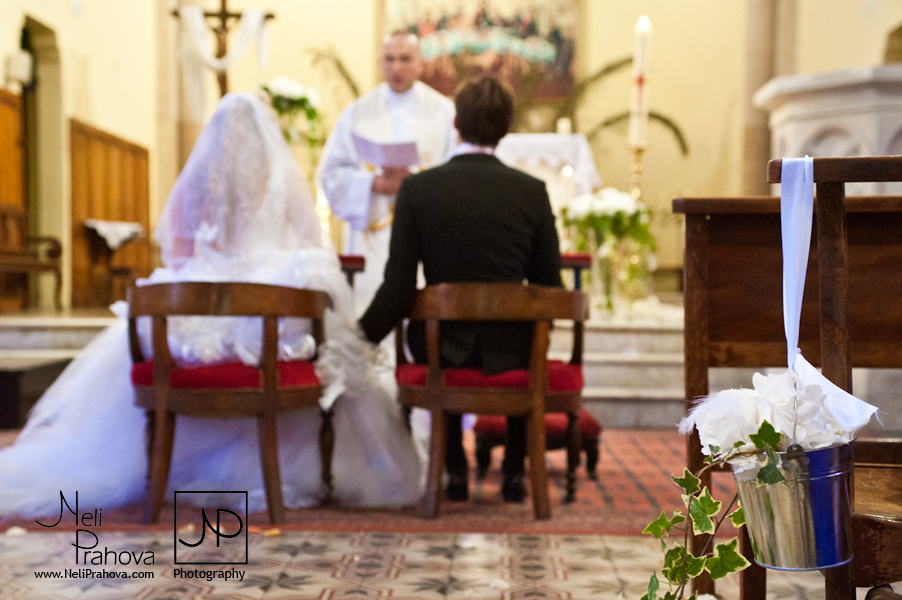
Conventional
A “conventional” wedding will contain most, if not all, of the following:
- an introduction or welcome;
- readings, sometimes delivered by friends or family – these can be prose or poetry, and can be chosen specially by the couple or suggested by the celebrant;
- music – this is unlikely to be “traditional” – although there’s nothing to stop people throwing in a hymn or the like. It may well reflect the couple’s personal preferences or a significant moment in their relationship;
- the vows – these may be written by the couple (with or without celebrant input) or simply suggested by the celebrant. They may be memorised or (more advisable!) read from a card or repeated after the celebrant;
- a ring blessing;
- a celebrant address – this may be something on the importance of marriage combined with the couple’s ‘story’ ;
- maybe, a ritual or two – for example, lighting a unity candle.
Such weddings may feature the bride in white; several, many or no religious elements; and a variety of choices of music and texts.
Venues can be just as varied, of course. Provided the legal part of the wedding has taken place (ie is registered), imagination or budget would seem to be the main limitations as to where you hold the ceremony.
More ‘way out’
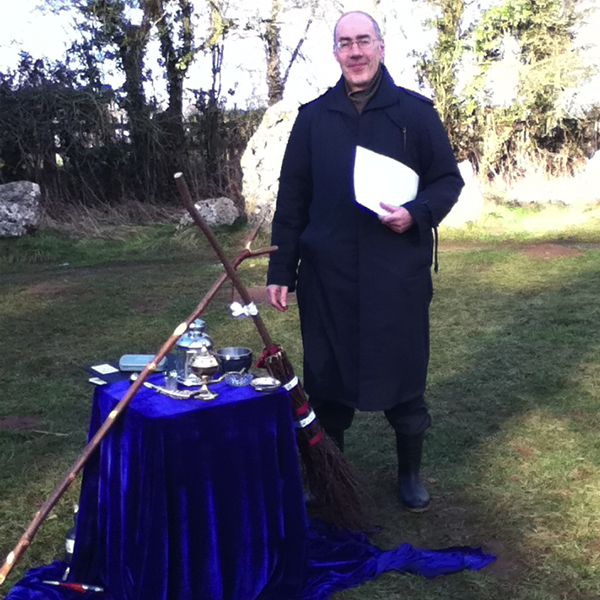
However, I am occasionally asked to do a couple of less middle-of-the-road ceremonies. One was a naturist wedding (I’m afraid, I have no photographs!) and, almost a year ago, a pagan wedding with a difference.
This wasn’t an ‘ordinary’ pagan wedding – if any can be thus termed – as the pagan was marrying a (half!) Jew, so elements from both cultures had to be combined (and explained to guests).
It was a handfasting ceremony, so that also set this apart.
The venue was certainly striking, as we were on top of Old Sarum, near Salisbury. This was of particular significance, as this iron age fort is very exposed, as the photo above shows – and we were holding the ceremony in January. January 2014 was a time of serious floods, as you may recall, and the chances of a dry wedding were very poor. However, whether it was due to the combination of cultures, or mere coincidence, the sun actually shone (briefly) on the ceremony, and all went – forgive the pun! – swimmingly.
So you have choices. Weigh them up and decide wisely. Bear in mind that a personalised wedding can be so special. Do give it consideration!
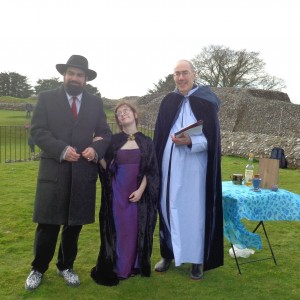
by Michael | Apr 1, 2014 | Blog
People are always asking me what a handfasting is. I confess, before I became a Civil Celebrant, I had never heard of it, so I am happy to pass on what I have learned.
There’s no straightforward answer, actually, because it depends on the degree of handfasting you’re interested in.
What are its Origins?
The ceremony (not in the form we know it today) dates back some 4,000 years to the Celts.
In the Middle Ages, a “handfasting” was used as a term meaning engagement to be married. Once the couple had formally declared their vows to each other, they were legally married. During the handfasting, each of the pair would take the other by the right hand and declare out loud that they there and then accepted each other as man and wife.
A Lovely Touch
If you just like the idea, your celebrant can include a handfasting in your wedding (or vow renewal) ceremony after saying your vows. Prince William and Kate had some ribbons draped over their hands during their wedding, because they accepted that it was a beautiful ritual.
A Different Perspective
Many people, particularly pagans, see the handfasting ceremony as comprising their wedding itself. Rather than being an ‘incidental’, or a ‘lovely touch’, this can be seen as a vital component.
The prayers and readings may invoke the four elements (earth, wind, water and fire) to bring blessing to the couple. A variety of symbols (which could include, salt and incense) play a part, and several people may be invited to be active participants.

The Pagan Ceremony
The type of handfasting chosen depends upon the type of pagan involved in the ceremony.
The marriage vows can be for “a year and a day”, when the cords or ribbons are loosely tied, symbolising that the handfasting is a commitment, but not more; after a year and a day, the couple can return and repeat their vows with the cords tightly knotted (as now this is considered binding). Alternatively, the vows can be for “a lifetime”, “for all eternity” or “for as long as love shall last”.
Some ceremonies, as we have seen, are incidental to the wedding; others can last up to an hour. Some are very traditional, others quite modern. Most are conducted within a ceremonial circle (symbol of eternity).
Tying the Knot
The symbolic act of tying a married couple’s hands together may be relatively recent (though based on tradition). In fact, the use of ribbons and cords may date from this millennium.
Be that as it may, the idea of “tying the knot” comes from this custom. In some cases, the story goes, the couple was supposed to remain bound together until midnight!
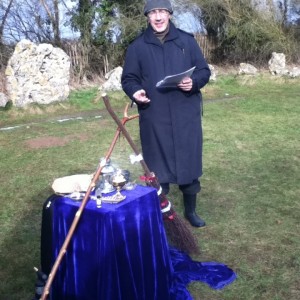
However you view a handfasting, it is a delightful ceremony that can really enhance your wedding. It is deservedly gaining in popularity – and, of course, can be held in some wonderful venues, such as stone circles including, if you get in early enough, Stonehenge. Imagine that!
Michael Gordon can help prepare and conduct a tailor-made civil ceremony in or around London or, indeed, in Europe.
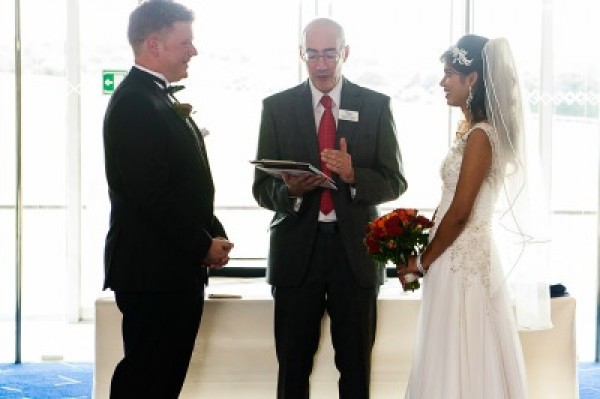
by Michael | Mar 12, 2014 | Blog
Many people assume that a wedding needs to be held either in a religious building or in the register office. Well, those are not ideal for all, but fortunately there is the option of a civil celebrant .
As a lot of people don’t know that civil celebrants even exist, here’s some general information that should be useful.
Can a celebrant marry me legally?
The short answer, according to current English legislation, is no. However, there are two workable options to allow you to marry legally and also to enjoy the ceremony that you actually want.
1) you can have a registrar in attendance at the celebrant-led ceremony (provided the venue has the appropriate licence) or
2) you can marry legally (with 2 witnesses) at the Register Office the morning or day(s) before the ceremony. The celebrant can then conduct what to all intents and purposes is a full wedding or a wedding blessing ceremony (in the venue of your choice). That way, everything is covered.
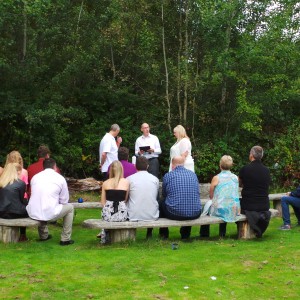
What’s the difference between the Registrar’s and Celebrant’s ceremony?
The short answer is personalisation.
A registrar will keep to a script, without departing from it at all. The ceremony must contain no religious references. The time-slot is limited (there is usually a ‘conveyor-belt’ system in operation). You won’t normally have met the registrar who will be conducting your wedding.
None of the above applies to a civil celebrant. In addition to the personal and bespoke service that a celebrant offers, you also have freedom of choice of venue and even hour.
Would it be a humanist service?
It depends on the celebrant. A humanist, like the registrar, is not permitted to offer any religious content. A civil celebrant, like myself, can tailor the service absolutely according to your beliefs and wishes. I recently conducted a handfasting wedding, which was a fusion of paganism and Judaism! And it worked!
How are celebrants overseen?
Many celebrants belong to a body that has strict codes of ethics (I belong to UK Society of Celebrants, for example). These normally ensure that standards are being adhered to, although the celebrants I come into contact with are clearly professional, competent and trustworthy.
What about fees?
These will vary between celebrants and, obviously, need to take into account travel, possibly, board and lodging, and any unusual accessories requested.
The amount of work that will go into creating and performing a ceremony will depend on the type of ceremony required, so there’s no hard-and-fast rule. Personally, I usually give clients a firm quotation after our initial chat.
My fees include (virtually) unlimited contact with clients and as many revisions to the script as we need. Naturally, I conduct the service too. There are details of what is included on my website (www.vowsthatwow.co.uk) and I always send a clear summary in my Ts & Cs, once I have had the introductory chat with my clients.
What restrictions are there to the ceremony?
Beyond what I have already mentioned (especially on the legal side), as long as your requirements are within the realms of decency and reason, you can have what you want at your wedding.
- If you want to dance down the aisle or wear Superman outfits, you can!
- You can get married where you want (within reason) – that includes outdoors, of course, and could be in a hot-air balloon, say
- Your ceremony can include your choice of music, readings, rituals and participants
The idea is that we are working towards your big day. It should reflect your personality and be fun (where appropriate), meaningful and memorable.
That’s where a good celebrant comes in …
by Michael | Dec 3, 2013 | Blog
Wedding traditions used to be so important to many people. However, things are certainly changing and there is far more freedom to improvise than there ever was.
Nonetheless, there is still a groundswell of tradition – or at least some sort of modified (‘new!’) tradition.
One of the joys of weddings today is that you can have a bespoke ceremony (cue: celebrant Michael!) and choose how many – or few – of the traditions to incorporate.
The traditions go beyond the ceremony itself, of course, as they would include paper invitations for beforehand and thank-you notes for after.
I’m not certain how ‘traditional’ it is, but it is definitely diplomatic to include all the family in the ceremony, letting them know in advance what involvement (if any) they will be invited to have. It’s also wise to reserve seating for them at both the ceremony and reception.
Finance
‘New traditions’ would seem to involve the couple contributing towards (or paying for) the wedding. Despite some massive, showy weddings today, many are opting for smaller or destination weddings.
Some couples are asking for money or gift cards, rather than a wedding list, in their invitation, which I consider poor etiquette. There’s nothing wrong, however, with mentioning to people that they would appreciate donations for new bedroom furniture, say.
Manners
Also improper is the failure to send a thank-you note afterwards. These should go out (on paper!) within three months (although some say – unbelievably! – that a year is acceptable). Courtesy surely dictates that you acknowledge any present you have been given fairly promptly after the honeymoon.
Gifts do not have to be expensive – a thoughtful choice can fit the bill admirably. For second marriages, gift cards and cash are probably most useful.
The wedding
As far as the wedding itself is concerned, it might not be the father who walks the bride down the aisle – it could be the stepdad. Then, there is no obligation to use bridesmaids or ushers, and so on. If you do, and if the bride and groom process in, do they come in first or after? What music, if any, will be played? What readings will there be? Who will deliver these?
The answers to these questions will influence exactly how traditional the wedding will be. The celebrant can be a great help here. For more information, please see my article at https://vowsthatwow.co.uk/?p=1133
Michael Gordon can help prepare and conduct a tailor-made life-cycle ceremony in or around London or, indeed, in Europe.







